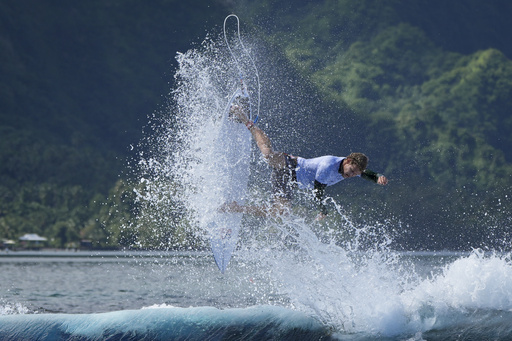In the world of surfing, the pursuit of the perfect wave has long been a key element of the culture. Surfers have traditionally traveled to different locations in search of the best swells. Over the years, surf forecasting has evolved, making this quest for the ideal wave much more manageable. This year, surf forecasting plays a crucial role in determining the four days that surfers participating in the Paris Olympics in Tahiti, French Polynesia, will take to the water in their quest for the gold medal.
Surf forecasting is a specialized field that falls under meteorology and oceanography. It utilizes similar tools and methods employed in weather forecasting and the study of the ocean. Forecasters keep a close eye on wind patterns and storms that travel over the ocean, sometimes spanning thousands of miles out at sea. These weather systems transfer their energy to the water, giving rise to waves. By tracking the movement of storms over the water and estimating the time they will take to reach the shores, forecasters can predict wave behavior.
While some traditional forecasters still perform manual calculations, the development of software has semi-automated the data collection process to create forecasting models. Forecasts can generally be reliable up to about 10 days in advance, according to Nathan Cool, a wave forecaster and the creator of WaveCast. However, he emphasizes that surf forecasting is not an exact science. Despite its limitations, surfers worldwide regularly consult forecasts available on popular surfing websites to determine whether it’s a good day to hit the waves.
Climate change is expected to have a gradual impact on surf forecasting, rather than causing abrupt changes, Cool explains. The rising sea levels and alterations in coastal geography resulting from processes like coastal erosion and shifting shoal shapes will eventually lead to modifications in how and where waves break. These changes are likely to occur over an extended period, affecting local surf spots and coastlines over time.
In the context of the Paris Olympics surfing competition, surf forecasting plays a pivotal role in deciding when the event will occur. Forecasts predict the arrival of swells, as well as the size and direction of waves. With only four out of a possible ten days allocated for the competition, selecting the optimal days based on forecasts is crucial. The current forecast for the competition window, spanning from July 27 to August 5, presents a mix of good and bad news. While an anticipated swell on the first day suggests that the competition will kick off early in the window, the presence of unfavorable winds may affect surfing conditions, potentially leading to delays in the competition schedule.
Fernando Aguerre, president of the International Surfing Association, remains optimistic but cautious, stating, “We’ll hope for the best and plan for the worst.”


